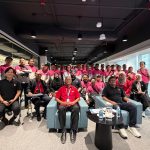67% of the workforce reports feeling burnt out in 2024, up from 58% in 2022.
Now, more than ever, Malaysian employers must provide better flexibility and remote working opportunities to their employees. According to the new 2024 Wellness at Work Report by global employment authority Employment Hero – a leading people, payroll and benefits software provider – two-thirds of the Malaysian workforce are currently experiencing burnout.
The report, which polled 1015 Malaysian employees, found a significant rise in employee burnout from 58% in 2022 to 67% in 2024, emphasising the urgent need for enhanced mental health support and workplace wellness initiatives. Millennials are the hardest hit generation, with 69% experiencing burnout, followed closely by their Gen Z colleagues at 64%.
Additionally, the biggest contributor to burnout among Malaysian employees is juggling work-life balance, with 55% rating their work-life balance as poor or average. However, interestingly, 58% of fully remote employees indicated that their overall work-life balance was above average, compared to 44% of hybrid employees and 42% of in-office employees.
“The findings of our 2024 Wellness at Work Report clearly shows that it’s time for employers to consider embracing remote working and flexible arrangements more fully,” says Employment Hero CEO and co-founder, Ben Thompson. “The recent amendments to the Employment Act 1955 in Malaysia now regulate flexible work arrangements, which is a positive step forward. By offering remote work and flexibility, employers can help their teams achieve a better work-life balance, reduce burnout, and improve overall job satisfaction. Supporting our employees’ wellbeing not only helps them but also contributes to a more productive and motivated workforce.”
This sentiment that flexible working arrangements could potentially pose a solution to the rising burnout is echoed throughout the report, with 88% of knowledge workers wanting to work remotely at least one day per week, and remote and hybrid working seen as generally better not only for work-life balance, but also personal finances for the majority of Malaysians. In fact, with only 53% of employees feeling on track with their financial goals and 49% of respondents feeling that their workplaces are not doing enough to support rising living costs, it’s clear that financial stress is also a major factor in the rapidly increasing burnout rate.
Roopy Dhaliwal, Head of People Experience at Volvo Car Manufacturing Malaysia, adds, “Addressing stress and burnout among the younger workforce requires a multifaceted approach tailored to their unique needs. Flexible work arrangements are crucial, especially for working parents and younger employees balancing academic commitments. Incorporating fun and engagement into the workplace, such as stress management workshops and support groups, can significantly reduce stress. Ultimately, flexible work policies are essential for creating a work environment where all employees can perform at their best while maintaining their wellbeing and work-life-balance.”
In spite of all this, there does seem to be a potentially brighter future in sight. Encouragingly, 52% of employees rated their employer’s commitment to improving overall health and wellbeing as above average, with 77% of Malaysians satisfied with the working relationship they have with their manager. With this in mind, simply allowing for further flexible working options looks to be the primary incentive – apart from pay – that will not only contribute to workplace retention, but also talent attraction as well. For more information, download the full report here.










